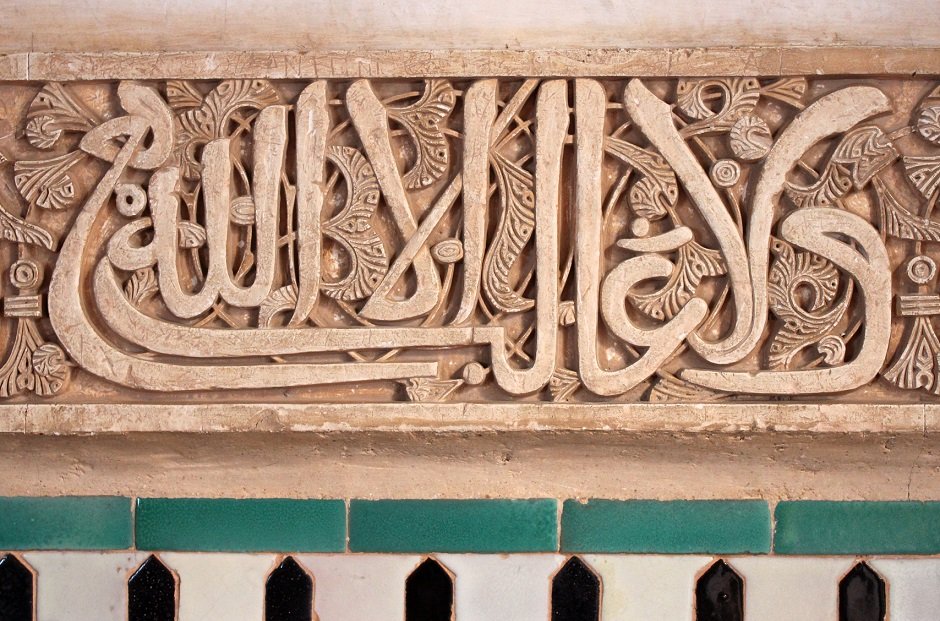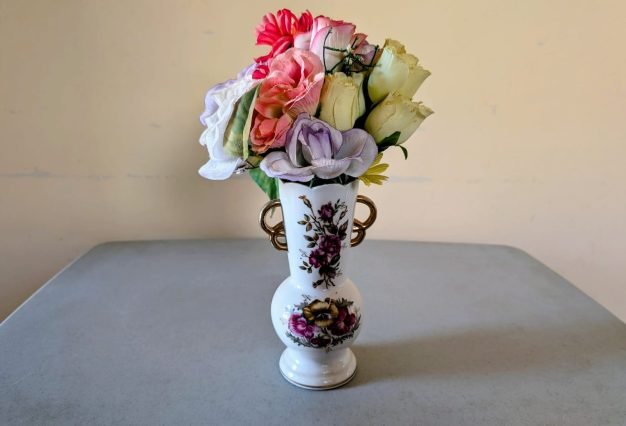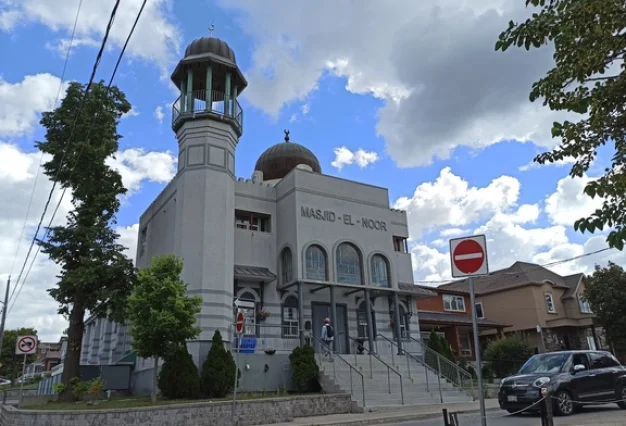By Yūsuf Badāt
Alandalūs, the Iberian Peninsula, modern day Spain and Portugal, is a land that was ruled by Muslims for 800 years, starting in the year 711. Volumes have been recorded and written, with historical accounts of this great period by countless authors. There is much to learn from both, the rise and fall of Alandalūs.
Here-below are 17 powerful lessons for you and I to reflect upon, ultimately to improve our present and future.
#ONE: Visionaries
Alandalus began with the foundations of a vision. The likes of Mūsā Ibn Nuṣayr, Ṭāriq Ibn Ziyād and Ṭarīf Ibn Mālik were the first Muslims to explore the land of Spain, with a vision to share God’s message and to also release the Iberian Peninsula from the shackles of oppression and injustice. This vision is what led to the commencement of the golden era in Spain. Be visionaries!
“Race one another towards forgiveness from your Lord (Allāh), and towards Paradise, the width whereof is as the width of the heaven and earth, prepared for those who believe in God and His Messengers.” (Qurʾān 57:21)
#TWO: Dynamism
Over the course of the 800 years in Islamic Spain, history is a witness to the fact that, as long as individuals were active, persistent and consistent on the objectives, progress remained their destiny. Once the focus was lost, the decline became evident. Be consistently dynamic!
“Verily, those who say, “Our Lord is [only] Allāh,” and thereafter remain firm [or persistent], there will be no fear on them, nor shall they grieve.” (Qurʾān 46:13)
#THREE: Age, a Mere Number
ʿAbd Al-Raḥmān Al-Dākhil, also known as ʿAbd Al-Raḥmān, the First, was only 20 years old when he escaped the threats of his death at the hands of the ʿAbbāsids. He traversed across the Mediterranean Sea, landing in Spain, soon to lay down the foundations of the majestic Ummayad Islamic leadership on the land, that prospered tremendously into Alandalus. Despite his young age, he is marked in history as one of the founders of Islamic Spain. No matter your age, you can make a difference!
Zayd Ibn Thābit (may God be pleased with him) was empowered as a youngster by the Prophet Muḥammad (peace and blessings upon him) to be his translator for the Hebrew and Syriac languages. (See: Tirmidhī)
#FOUR: Quality for Impact
Islamic Spain was known as the hub for creativity, excellence, advancement, technology, material innovation and spirituality. Both Muslims and Non-Muslims from across the world were drawn to the quality and excellence. It had a huge impact on the nearby and distant communities. Alandalus, during its time was considered the “gem of the world”. Incorporate quality for a positive impact!
Iḥsān (excellence), itqān (perfection) and jawdah (goodness) are all encouraged by the Prophet Muḥammad (peace and blessings upon him) – (See: Tirmidhī).
#FIVE: Common Customs and Culture
The beauty that resonates, even in modern Spain today, is a reflection of the architecture, language and customs Muslims embraced and infused during their peak in Alandalus, from the local indigenous populous. This integration worked to the advantage of all those who benefited from the golden era and beyond. ‘Urf (contemporary customs) is a terminology found in islamic jurisprudence, where jurists implore to consider common customs and culture in religious decrees, provided they do not conflict with religious fundamentals. Embrace your surroundings!
“That which is established by common customs is similar to that which is established by a source text.” (Ibn ʿĀbidīn)
#SIX: Coexistence
Islamic Spain was a melting pot of diverse communities. Historians record that this was one of the only places on earth, during the era, where Muslims, Christians, Jews and atheist coexisted, side by side with utmost peace. As an example, some of the greatest Jewish scholars and Jewish religious writings were produced in Islamic Spain. Be people of coexistence!
“And assist one another in matters of righteousness and piety, and do not assist one another in sin and aggression.” (Qur’ān: 5:2)
#SEVEN: Education and Arts
Some historians have documented that Islamic Spain was known primarily for four things, its universities, arts, water and its beautiful gardens. Islamic communities in Alandalus not only welcomed students from across the globe but also arranged for bursaries and scholarships to finance their education and living arrangements. The world’s best surgeons, engineers, craftsmen, tailors, vocalists and poets were found in Islamic Spain during the 10th century. Cordoba itself had 70 libraries. Some of the most accomplished islamic scholars such as Al-Zahrawī, Ibn Bājah, Ibn ʿAbd Al-Barr, Ibn Rushd, Ibn Tamām Al-Azdī, Ḥāfidh Al-Qurṭuby, all hailed from Alandalus. Be people of education and arts!
“The one who treads a path seeking knowledge [and education], God will ease their path to Paradise.” (Ṣaḥīḥ Muslim)
#EIGHT: The Deception of Luxury
The great periods of glory in Islamic Spain began to slowly cripple when both the rulers and the masses became too comfortable with the riches of the land. It reached a point where they were not ready to mobilize and sacrifice, even in situations of danger and eminent threat. When the primary focus of the novice, the expert, the Berbers, the Arabs and also the indigenous, simply became material and luxury, decline was the outcome. This also translated in weakness of faith, sinful activities and a drastic aversion from Islamic principles and morals. Have a balance with luxury!
The Prophet Muḥammad (peace and blessings upon him) said, “For every community there is a trial, the trial of my community is wealth.” (Tirmidhī)
#NINE: Rivalry and Disunity
Perhaps the greatest reason for the fall of Alandalus was disunity and division. Over the centuries of Islamic rule, from the Ummayds, Murābitūn and the Muwaḥḥidun rulers, in the Iberian Peninsula, instead of adhering to one leader, as it was in the beginning, it now became divided into Muslim factions and territories. Each amīr (ruler) proud of his own territory. Each city had its own amīr, who was in rivalry with the other, to outdo the other. Ibn Baṭūṭah, the great Muslim traveler also entered Alandalus. He was impressed with the land, its people and the advancements. However, he also noted that it was his first time seeing so many individual rulers on one land. The most painful part of this history is the fact that some rulers also partnered with disbelievers and paid non-muslim armies to attack and wipe out the territory of his muslim rival. The result was in fact, losing the region to the non muslim army. During this period of the ṭawāif (individual territories), rulers, one by one fell, which then led to the fall of the final city of the Muslims, Granada. In the end, Muslims were forced to leave the land, convert to Christianity or face the death penalty. The sad result of disunity. Be people of unity!
“Be loyal to God and His Messenger, and do not divide amongst yourselves, lest you lose courage and your strength departs. Be persistent, surely, God is with those who are firm.” (Qurʾān 8:46)
#TEN: Character VS Preaching
During the period of the downfall, when rulers in Alandalus were seen by the masses and the indigenous, that their objectives shifted from the true practice of religion towards, ego, power and dominance, even if it meant to murder another Muslim community, the masses lost interest in supporting and following such corrupt leaders. The initial attraction that brought Islam and glory to the lands, were sincerity, service, character and genuine practice of Islam. Now, the empty words of preaching rulers, with little to no practice, left the masses disconnected and confused. This weakened the overall strength of Muslims which resulted in the ultimate decline and defeat of Islamic Spain. Remember, character is more important than knowledge that is not applied!
Muḥammad (peace and blessings be upon him) declared that, “God has sent me as a Messenger so that I may demonstrate perfection of character, refinement of manners and superiority in behaviour.” (Musnad Aḥmad, Mawaṭṭa)
#ELEVEN: Structures VS Programming
The thousands of mosques that once stood in Islamic Spain have now either been replaced by churches or demolished. Some historians also record, that rulers often built beautiful mosques near their palaces, not necessarily for Islam, rather to display dominance and glory. As Alandalus began to fall, the great islamic structures became void of congregational prayers, social services, programs, town hall gatherings and meaningful interaction. Today, for example, the great mosque of Qurṭuba, which was known to be the largest and most beautiful masjid in the world of the time, stands as a Christian church with, the name, “Mosque–Cathedral of Córdoba”. Muslim visitors may enter the facility, however, are banned to pray or worship Allāh in it. Minarets across the landscape of Spain, that once echoed the muslim call to prayer, are now, ringing bells for Christian mass and observances. Activities in a structure make the structure what it is!
The Prophet Muḥammad (peace and blessings be upon him) speaking about the decline near the end of times stated, “Their mosques will be populated but void of guidance [and related activities].” (Bayhaqī)
#TWELVE: Identity, a Legacy
When Granada, the final city under Muslim control was handed over to the Catholic monarchs, Isabella and Ferdinand, Muslims and Jews, within a short span of time, were forced to be exiled or convert to Christianity, otherwise be executed. Numerous indigenous Spanish Muslims did not want to leave their homeland, thus converted externally to Christianity, while maintaining their Islamic identity in the privacy of their homes. They passed on the teachings of Islam to their children, in a concealed manner. Despite the difficulty where, investigative troops were on the lookout to kill these moriscos (who remained internally muslim), they preserved their Islamic identity by practicing and teaching in private. The times were so difficult and challenging since Arabic, all Islamic customs and the Qurʾān were outlawed by the Catholic monarchs. Anyone caught practicing was convicted to torture and the death penalty. Maintain your identity, no matter what!
“Hold firmly, all of you together, to the rope of God!” (Qurʾān 3:103)
#THIRTEEN: The Present
Most of us in today’s time have numerous blessings of freedom related to travel, identity and religious practice. We must value everything we have and maximise it for God’s sake. Muslims of historic Muslim Spain had everything one can imagine to own, have and access. For many, it was suddenly snatched away, during the fall of Alandalus. At that time, they longed for even a single prayer in the grand mosque of Qurṭuba or a stroll in the gardens of the Alhambra quarters in Granada. It was all gone. Value what you have in your present circumstance!
“Value five matters before five; youth before old age, health before illness, riches before poverty, free time before work, and life before death.” (Bayhaqī)
#FOURTEEN: Traces
Wherever one travels in modern day Spain, one can quickly observe signs on structures, names on streets and customs in the culture that remind the visitor of Islamic Spain. Verses of the Qurʾān remain engraved on walls of historic buildings. Arches and towers with Islamic architecture and art, still stand erect fascinating the onlooker to reflect on Alandalus’s history. It is a well known fact that modern day Europe is founded from historic Alandalus.
No matter what one does, their trails leave behind marks, symbols and traces. Ensure to leave a positive legacy!
“When a person passes away, their deeds come to an end, except for three, a continuous charity, knowledge by which people derive benefit and righteous children who pray.” (Ṣaḥīḥ Muslim)
#FIFTEEN: A Door Closed, Another Opened
When Alandalus collapsed, concluding the 800 years of Islamic rule, it was around the same time that the capital city of the Byzantine Empire, Constantinople, fell to the Muslims of the Ottomans under the young Sultan Mehmed, the Second. A period of glory concluded, while another started. A conclusion was also a beginning, an end, also a start. Never lose hope!
“As for those who strive sincerely in our cause, we will surely guide them to our paths. Verily, God is with the those who apply excellence.” (Qurʾān 29:69)
#SIXTEEN: Your Turn
Life is a test. There will always be ups and downs. Alandalus had its fair share of periods of glory, as well as lowliness. Rulers came and went. Alandalus is also a testimony how individuals who once were amongst the ruled unknown, elevated to become popular rulers of the lands and vice versa. Everyone has their turn, make use of it!
“Such days are rotated among the people, so that God may test the believers.” (Qurʾān 3:140)
#SEVENTEEN: The Strongest Link
Regardless of external circumstance, situation, position or post, as long as one is linked to the Almighty, one will be in success. Indeed, absolute victory is with God. Alandalus teaches us that, at the end, everyone returned to God, and will certainly be judged by Him. The famous Alhambra palace that is currently the most visited tourist site in Spain, retelling the history of Islamic Alandalus, has the repeated inscription on almost every gorgeous wall, “La Ghāliba Illa Allāh” (There is no true victor except God). Always maintain your link with God!
“And whoever is loyal to Allāh and His Messenger has indeed achieved the greatest success.” (Qurʾān 33:71)
In conclusion, we pray that we all read, learn and apply life lessons from historic Islamic Spain. If you get a chance, do visit Spain, since hearing about something is never like actually seeing it! May we be empowered to all goodness!




